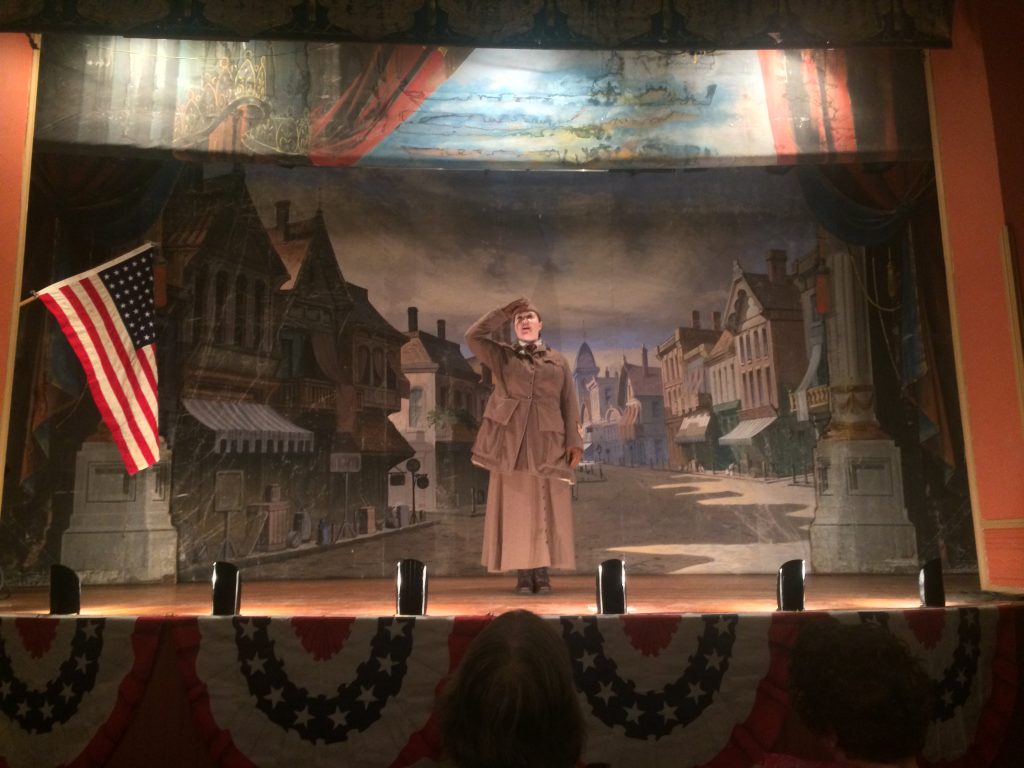
In March of 2017, two years after I performed my first Lincoln Highway concert, I debuted my second big concert program titled, “The Songs of World War One”. I knew that people would learn and enjoy the program, but I had no idea how it would be received. It was a wonderful surprise to find out not only that people enjoyed the concerts, but that I performed the music well past the 100th anniversary of the Armistice – all the way to November of 2019.
In those two and a half years of performing those songs, I met and connected with so many people nationwide who had their own stories and songs to share. And those stories made me think of all of the programs in a whole new way, and they changed me. It’s been a year since I last wore my re-created uniform, and I felt impelled to share some of what I saw and learned with you all.
- I had people of all backgrounds come to hear me sing and learn about this moment in history. The First World War is often a footnote in American history for your average person in the US. They didn’t learn about it (much) in school, and that’s more often than not because we really weren’t the “heroes” as we were in World War Two. And with the 1918 flu pandemic, Prohibition, The Great Depression and more, the Great War often takes a backseat in some history books and lesson plans. I was a part of a WWI marker dedication in Boise, Idaho in 2018. Because of the aforementioned circumstances, they never had a memorial put up in their Veterans’ Park, and were finally able to commemorate it a century later.
- Because of this war being overlooked, the roles that women played in the WWI are often forgotten or unknown here. My uniform as a contract Army surgeon was often a topic of discussion; people either thought I was “playing a non-American woman” onstage (French or Russian), or they assumed that it was not a “real costume”. I deliberately chose to re-create a surgeon’s uniform because of two reasons: 1) To highlight roles beyond what most people know (i.e. a nurse or a “Hello Girl”) and 2) To show modern audiences that some women who had special expertise were hired for their knowledge versus taking on a volunteer role (women were not allowed to enlist at the time).
- People often ask me if any contentious things happened at my shows. “Do things get political during your concerts?” they would ask. My answer: Never. People leave their personal beliefs at the door, they come to learn, sing along and have a laugh. I take my responsibility as a performer and historian to hold and create a space where they can come back in time with me without present-day judgements. And that shared experience builds community in the best way possible.
- Hearing the stories of veterans after shows – I still have no words that can express how much these moments have changed me. In two and a half years, I met lots of vets who served in World War Two, Korea, Vietnam, and in later wars. They would come up to me and share their stories with me. Stories of family members who served, stories of things that happened while they served. Things they learned while doing historic research on their own families or soldiers who served in their towns. It honored me that they felt so moved by the music to come to me afterwards to share these things with me, and it’s informed how I continue to sing and show up for people today.
One of the most important comments I received from a Vietnam veteran after a 2019 performance that has stayed with me ever since was, “I wanted to let you know I fought in Vietnam, and tonight’s concert made me think about war in a way I’ve never thought about before. Thank you.”
Every time I think about that moment in time, time stops for me. I can still see the look in his eyes when he shared this insight for him. I can still feel the adrenalin that courses through my body after a show drop immediately and his words took my breath away. While I share America’s history through these concerts and I’m grateful to be able to do so, it’s in those connections and spaces where everything moves into a life of its own which is the most important thing not only for you as an attendee, but for me as well.
For the veterans who are reading this, thank you for your service. I would not be able to share my songs and knowledge with the world without you, and I’m grateful for that. For those who have lost a friend or family member who served, I am truly sorry for your loss and every time I bring these songs back to life, I am thinking about them hold them with the highest honors in my heart. I hope to perform the World War One program again someday in the future, but in the interim I welcome your thoughts and your stories, either in the comments or reach out to me privately via email or the contact page. Thank you.